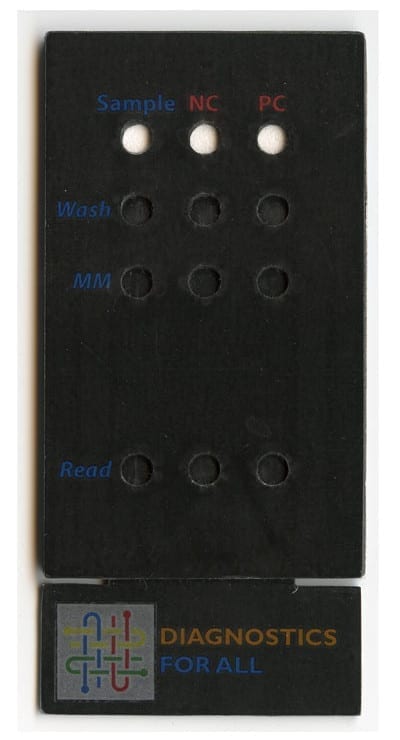In the U.S. and other industrialized nations, testing for infectious diseases and cancer often requires expensive equipment and highly trained specialists. In countries where resources are limited, performing the same diagnostics is far more challenging.

To address this disparity, scientists at Diagnostics for All are developing a portable, low-cost “paper machine” for point-of-care detection of infectious diseases, genetic conditions and cancer. Their report appears in the ACS journal Analytical Chemistry.
Many modern diagnostic techniques involve analyzing DNA in a patient’s blood sample. If pathogenic bacteria, for example, are present, the test will detect the foreign genetic material.
Part of the barrier to bringing this kind of technology everywhere is that it often requires multiple steps under precisely controlled temperatures to prepare a sample and analyze it.
Scientists are working to simplify these procedures, but most are still not ideal for remote locations. John T. Connelly and colleagues set out to make this critical technology more accessible.
Using materials that cost a less than $2 total, the researchers condensed sample preparation, DNA analysis and detection steps into a hand-held paper machine. It successfully determined whether as few as five cells of E. coli were present in test samples.
The results can be read using ultraviolet light and a smartphone camera. The researchers say they are further refining the machine to make it even simpler to use.
The research was backed by funding from the Defense Advanced Research Projects Agency.
Read the paper at Analytical Chemistry: A ‘Paper Machine’ for Molecular Diagnostics.

